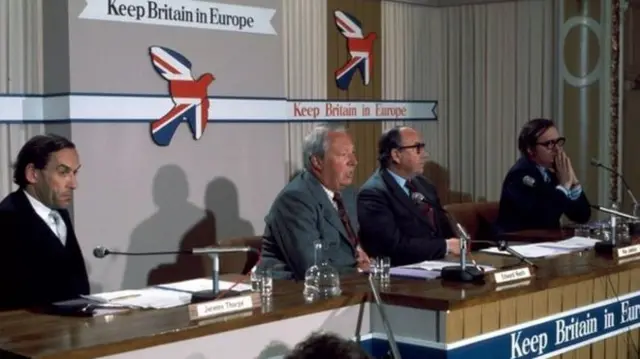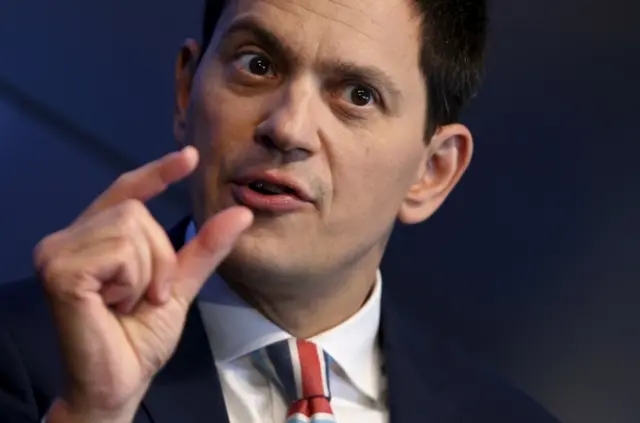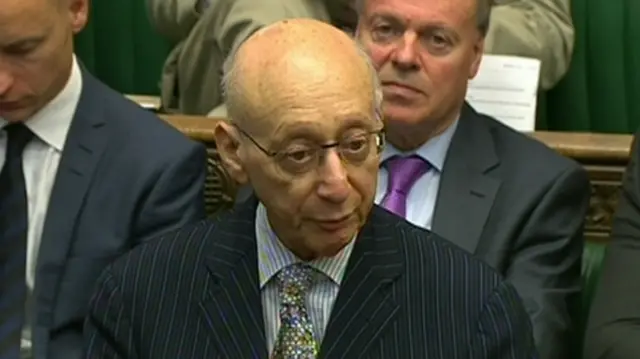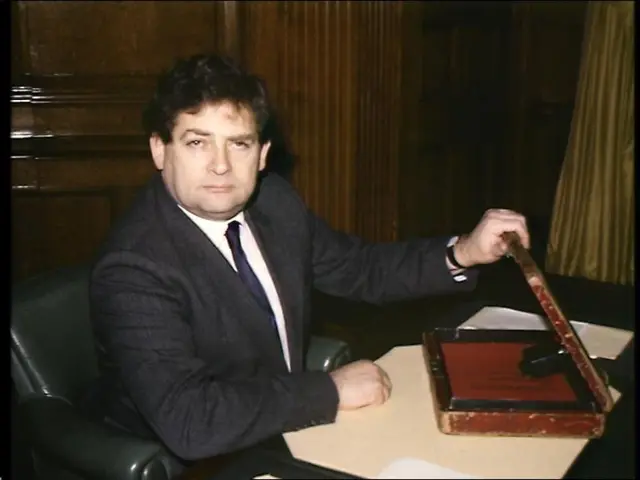Politicians 'want to make example of me'published at 10:28
 Victoria Derbyshire
Victoria Derbyshire
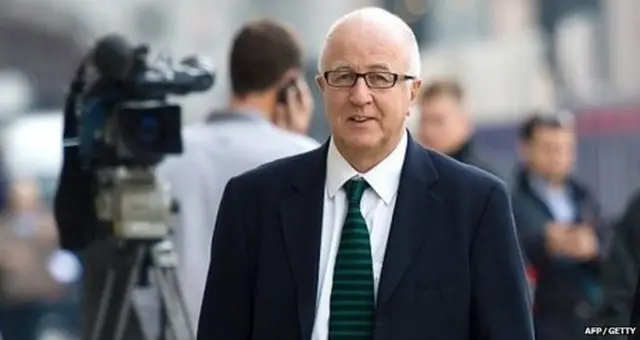 Image source, AFP/Getty
Image source, AFP/GettyDenis MacShane pleaded guilty in 2013
Denis MacShane was jailed for six months for expenses fraud after admitting submitting 19 fake receipts amounting to £12,900.
Asked about it, the former MP says it was "wrong" and "foolish" but says none of the money was for "personal gain".
He says he was investigated and the initial police case against him was dropped but adds that the politicians "want to make an example of me" and "a very politically-orientated" director of public prosecutions chose to reverse the initial the decision.
MacShane suggests he pleaded guilty because he was "exhausted" and "my savings had gone", adding: "Did you think I was going to fight this?"
But he adds that "I did wrong" and says he is "not complaining" about what happened.



